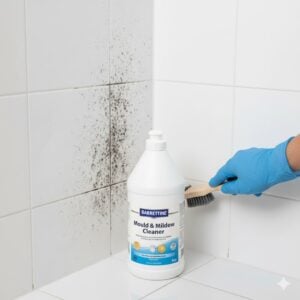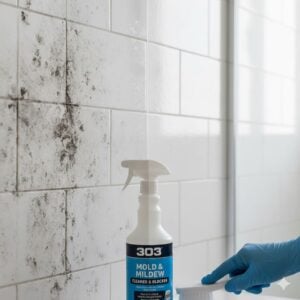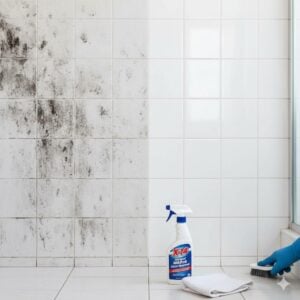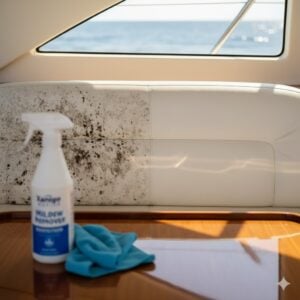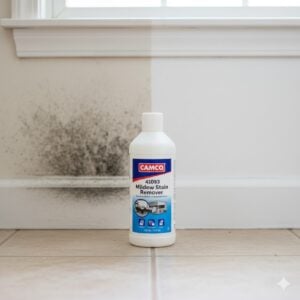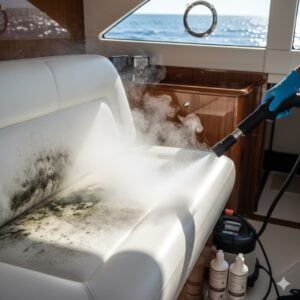Choosing the right after death cleaning services is a decision enveloped in both necessity and sensitivity. In the aftermath of a loss, families and property owners face the daunting task of restoring spaces affected by the passing. It’s not just about cleaning; it’s about handling a space with care, respect, and understanding. This article delves into eight crucial considerations to keep in mind when selecting an after death cleaning services. From technical expertise to the delicate handling of such situations, we’ll guide you through the key factors that ensure the chosen service meets the highest standards of professionalism and compassion.
[lwptoc]
Table of Contents
Toggle1. Experience an Expertise
When selecting an after death cleaning services, the experience and expertise of the service provider are paramount. This aspect goes beyond the mere duration a company has been in business; it delves into their proficiency in handling the unique challenges presented by after death scenarios. Experienced professionals are adept at navigating the complexities of such cleanups, which often extend beyond straightforward cleaning tasks.
A company seasoned in after death cleaning will have a comprehensive understanding of how to manage various situations, from natural death in a residential setting to more complicated scenarios like unattended deaths. Each of these situations presents distinct challenges. For instance, unattended death cleanups often involve dealing with advanced stages of decomposition, requiring a specific set of skills and knowledge to address effectively (internal link to 7 Key Aspects of Unattended Death Cleanups).
Expertise in this field also means being knowledgeable about the potential health hazards associated with after death environments. Professionals in this area are not only trained in effective cleaning methods but also in handling biohazardous materials safely and ethically. They understand the importance of using the right cleaning agents, tools, and techniques to ensure the area is thoroughly cleaned and sanitized, reducing the risk of exposure to harmful pathogens.
In essence, the experience and expertise of an after death cleaning services provider are critical in ensuring that the job is done with the utmost respect, care, and technical proficiency. It’s about entrusting the task to those who are not only skilled in cleaning but also understand the gravity and sensitivity of the situation, offering peace of mind during a difficult time.
2. Compliance with Health and Safety Standards
Choosing an after death cleaning services that strictly adheres to health and safety standards is crucial. These standards are designed to protect both the cleanup crew and the occupants of the property from potential health hazards. Compliance ensures that the cleaning process is not only thorough but also safe and in line with regulatory requirements.
Table: Key Health and Safety Standards in After Death Cleaning
| Standard/Regulation | Description | Importance |
|---|---|---|
| OSHA Bloodborne Pathogens Standard (29 CFR 1910.1030) | Mandates protections against occupational exposure to bloodborne pathogens | Ensures crew safety and proper handling of biohazards |
| EPA Regulations on Disinfectants | Requires the use of EPA-registered disinfectants effective against a broad spectrum of pathogens | Guarantees the thorough sanitization of the area |
| State and Local Health Regulations | Varies by region, but generally covers the disposal of biohazardous waste | Ensures legal compliance and public safety |
Statistics on Health Risks:
- According to the CDC, there are approximately 5.6 million workers in the healthcare industry and related occupations at risk of occupational exposure to bloodborne pathogens.
- The OSHA Bloodborne Pathogens Standard, which is often a benchmark in after death cleaning, was specifically developed to reduce the risk of transmission of diseases like HIV and Hepatitis B and C.
An after death cleaning services compliant with these standards will have protocols in place for every aspect of the cleanup process. This includes the use of appropriate personal protective equipment (PPE) to prevent direct contact with hazardous materials, which is a critical component of the 5 Essential Steps in Professional Biohazard Cleanup.
Furthermore, compliance with these standards means that the service provider is up to date with the latest cleaning and disinfection techniques. They will be knowledgeable about the most effective chemicals and methods to eliminate pathogens, as highlighted in their approach to Effective Blood Cleanup.
3. Equipment and Cleaning Techniques
The effectiveness of after death cleaning services significantly depends on the equipment and cleaning techniques employed. This aspect is critical because the nature of such cleanups often involves dealing with biohazards that require more than just standard cleaning solutions.
Proficient after death cleaning services are equipped with specialized tools designed to handle various types of biohazard situations. This includes industrial-grade steam cleaners, HEPA filter vacuums, and powerful disinfectants. These tools are essential for thoroughly cleaning and sanitizing the area, ensuring no biohazardous materials are left behind. HEPA vacuums, for instance, are capable of trapping and removing tiny particles, including pathogens, which are crucial in scenarios involving airborne contaminants.
The cleaning techniques applied in after death scenarios also differ significantly from standard cleaning. These techniques are designed to handle various challenges, such as removing bodily fluids, which can seep into porous surfaces and require deep cleaning methods for complete removal. The use of specific cleaning agents, often EPA-registered, ensures the effective elimination of bacteria and viruses that pose health risks.
Moreover, in cases of blood cleanup, which are common in after death scenarios, specialized knowledge in dealing with bloodborne pathogens is essential. The approach to Effective Blood Cleanup must be meticulous, ensuring that all traces of blood are removed to prevent the risk of disease transmission.
4. Discretion and Sensitivity
Discretion and sensitivity are paramount when selecting an after death cleaning service. Dealing with the aftermath of a death, especially in personal spaces like homes, requires a level of empathy and understanding alongside technical proficiency.
Table: Aspects of Discretion and Sensitivity in After Death Cleaning
| Aspect | Description | Importance |
|---|---|---|
| Privacy Protection | Keeping the details and nature of the job confidential | Respects the family’s privacy and the deceased’s dignity |
| Empathetic Interaction | Sensitive communication with affected individuals | Provides emotional support during a difficult time |
| Discreet Operations | Conducting cleanup operations with minimal attention | Reduces trauma and stress for families and onlookers |
Statistics on the Importance of Sensitivity in Traumatic Situations:
- Studies show that experiencing a death, particularly in one’s own home, can lead to prolonged grief and trauma.
- The manner in which after death cleaning is handled can significantly impact the emotional well-being of those affected.
Choosing a service that values discretion ensures that the process is as non-intrusive as possible. This is crucial as the presence of cleaning crews and their activities can often be a reminder of the loss, adding to the distress of those grieving.
An empathetic approach is also vital. After death cleaning crews often interact with family members or friends of the deceased. Their ability to communicate sensitively and offer understanding during such interactions can provide a measure of comfort.
Moreover, the discreet operation of the cleaning process, with minimal publicity and quiet efficiency, helps maintain a sense of normalcy and respect. It’s not just about the technical cleaning; it’s about understanding and responding to the emotional context of the situation.
5. Response Time and Availability
When it comes to after death cleaning services, the response time and availability of the service provider are crucial considerations. In the wake of a death, especially in residential settings, the promptness of cleaning services is not only a matter of practicality but also of emotional and environmental well-being.
A swift response by a professional cleaning team can significantly mitigate the impact of the situation. In cases of unattended deaths or accidents, the longer the delay in cleaning, the more complicated the cleanup process becomes. For instance, biological fluids can seep deeper into surfaces over time, and odors can become more entrenched. Quick action ensures that these issues are addressed before they exacerbate.
Moreover, the availability of the cleaning service around the clock is essential. Death can occur at any time, and the need for cleanup services does not adhere to a nine-to-five schedule. A service provider who offers 24/7 availability demonstrates a commitment to being there for clients in their time of need, providing reassurance that help is available whenever it’s required.
The ability to respond quickly and be available at any time is also a reflection of the service provider’s dedication and professionalism. It shows that they understand the sensitive nature of after death cleaning and are prepared to offer their services with the urgency and respect the situation demands.
6. Understanding Legal and Ethical Aspects
In choosing an after death cleaning services, understanding and adherence to legal and ethical considerations is critical. This aspect is particularly pertinent in cases where the death might be under investigation or in scenarios like homicides, where legal procedures must be meticulously followed.
Legal compliance in after death cleaning involves adhering to regulations regarding the handling and disposal of biohazardous materials. A professional service should have a comprehensive understanding of these laws to ensure that all procedures are carried out legally. This includes the proper disposal of contaminated materials in accordance with state and federal guidelines to prevent any environmental hazards or public health risks.
Moreover, ethical considerations play a significant role. These include respecting the privacy and dignity of the deceased and their families. A responsible service provider will handle all aspects of the job with the utmost respect and sensitivity, understanding the emotional impact the situation may have on those affected. This sensitivity is crucial, especially in cases involving violent deaths (internal link to 4 Challenges of Cleaning after Homicides).
In addition to privacy and respect, ethical considerations also extend to the transparency of the cleaning process. Families and property owners often have questions about the procedures involved in after death cleaning. A trustworthy service will provide clear, honest information, helping to ease any concerns and establish a relationship based on trust and understanding.
In essence, a thorough understanding and respect for legal and ethical aspects are essential when choosing an after death cleaning services. It ensures that the cleaning process not only meets all legal requirements but is also conducted with the highest degree of respect and sensitivity, acknowledging the emotional and ethical dimensions of the situation. This commitment to legality and ethics is fundamental in providing a service that is not only effective but also compassionate and respectful.








